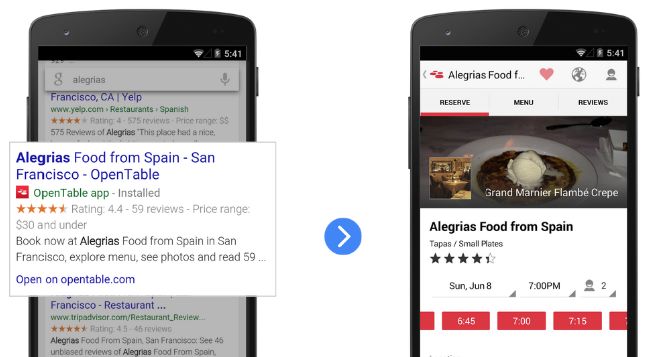On April 21st, 2015, Google is making significant changes and updating their algorithm to focus on mobile searches. The update will have a huge impact on search result rankings and this time, there’s no gray area. Your website is either mobile-friendly, or not. This means if you don’t have a mobile-friendly website, you will see a dramatic decrease in rankings. If you do have a mobile-friendly website, you will see an increase in ranking. The scary part for site owners without mobile-friendly websites is that it will affect all search results, not just mobile searches.

Mobilegeddon: All Search Results Will Change
Although the update will focus on mobile search results, the changes will affect all of the search engine result pages (SERPS). In fact, after the new update rolls out in it’s entirety, the impact on rankings will be so severe that many webmasters are calling it “mobilegeddon” because of how greatly it will change results. It’s not hard to understand why, all you have to do is follow the money. In 2013, over 76% of Google’s search ad revenue came from desktop ad spending.* In 2015, mobile ad spending will account for 49.0% of all digital ad spending and it’s projected to reach 72% of US digital ad spend by 2019.* Couple that with the fact that desktop use and ad spending dropped for the first time ever and it’s easy to understand why Google would make these types of changes now.
How to Test Your Website for Mobile-Friendliness
Google provides several useful tools to help make improvements to your website including the Mobile-Friendly Test which can also give you useful information, tips and guidelines. Here is a link to the Mobile-Friendly Test and instructions. The other way to check mobile-friendliness is to Google yourself using a mobile device such as your smartphone or tablet and look for the “Mobile-friendly” label next to your description excerpt. Here is an example of what ours looks like on my “phablet” when you Google our name.

The Googlebot
Google uses their proprietary algorithm to rank websites, apps., and other web page content to determine where they will show up on search engine result pages (SERPS). The algorithm uses web crawlers, also know as the “Googlebot,” to crawl web pages in order to view the content and follow links on those pages. This process is actually very similar to how a person would view a webpage, but the “Googlebot” can do it a million times faster day and night.
Better Ranking for Mobile Apps Google Indexes
Google has been crawling and indexing Android apps since 2013. This was done to give you the ability to connect pages from your website to content within your Android app. Basically, it allows people who have your Android app installed to open content in the app directly from mobile SERPS. So what’s changed? Not much other than the apps that are indexed will rank even better. Google is just expanding upon their previous app indexing and ranking algorithm they activated in 2013 because app ad spending is projected to increase over 40% to nearly 30 billion.* Google did say that it is only going to work for signed-in users and that it “may now surface content from indexed apps more prominently in search.” The image below shows you how they connect directly to the app when the SERPS contains a link to information that’s on an app you already have installed. To learn more about how to bring users right to your app and how to verify your app’s official website, here is a link to the Google Developers App Indexing for Google Search page.

Technology Evolution
Let’s face it, these days nearly everyone reading this will probably have or use a mobile device of some kind to access the internet on a regular basis. In a recent study from the Pew Research Center’s Internet Project, as of January 2014, 90% of American adults have cell phones, 58% have smartphones, 32% own an e-reader, and 42% own tablet computers.* With staggering statistics such as these, it only makes sense that the algorithm responsible for delivering results should adapt with the changing times as well. Google summed it up nicely in a recent press release, stating that “users will find it easier to get relevant, high quality search results that are optimized for their devices.”
Final Thoughts
The first thing you need to do is perform Google’s Mobile-Friendly Test on your website. If it’s mobile-friendly then you’re good to go, if not, you need to update that by April 21st or run the risk of lost rankings. However, this is a good thing since we all use mobile so much and it should actually translate into a better user experience for everyone. If you need help updating your website, let us know and we’ll provide a complementary consultation and quote for you. If you are thinking about contacting us to do this, please do not wait because we have several of these projects already on the docket and time is running out.
Thanks for reading, now go check your website to see if it’s mobile friendly or not and stay tuned for more updates.
Sources & Resources:
*72% of US digital ad spend by 2019
*In 2013, over 76% of Google’s search ad revenue came from desktop ad spending.
*App ad spending is projected to increase over 40% to nearly 30 billion.
*Pew Research Center’s Internet Project
*App Indexing for Google Search page.
Tags: Android App, Google Algorithm, Google Update, GoogleBot, Mobile Friendly, Mobile Marketing, Mobilegeddon, Ranking, Responsiveness, Web Design
